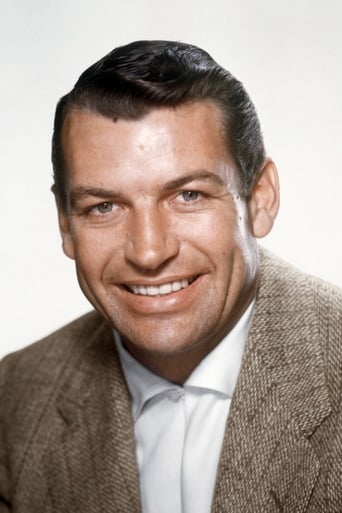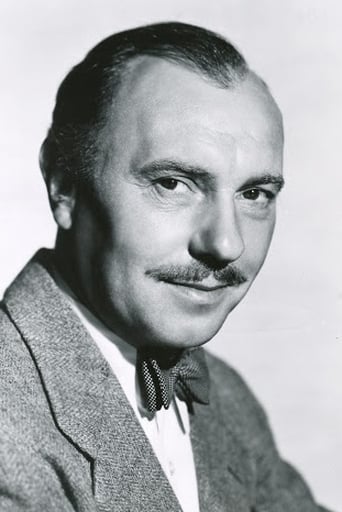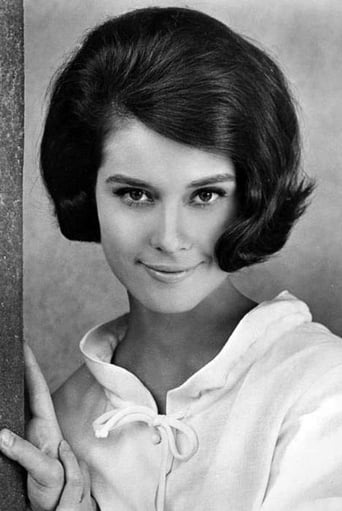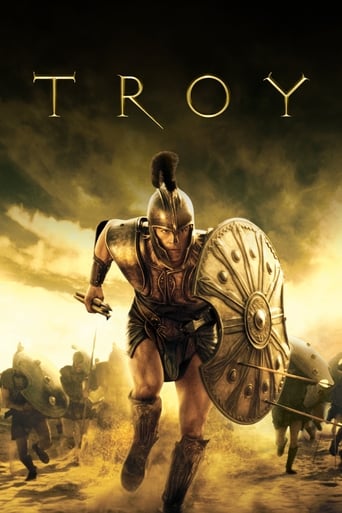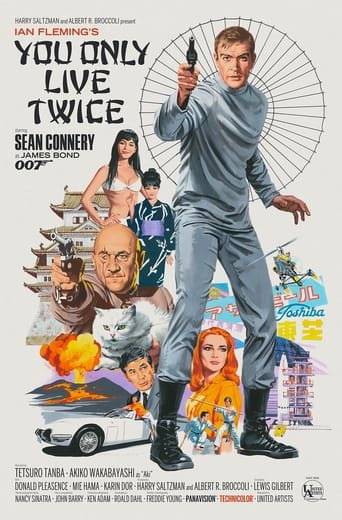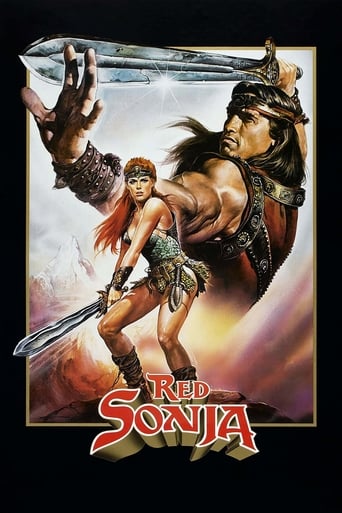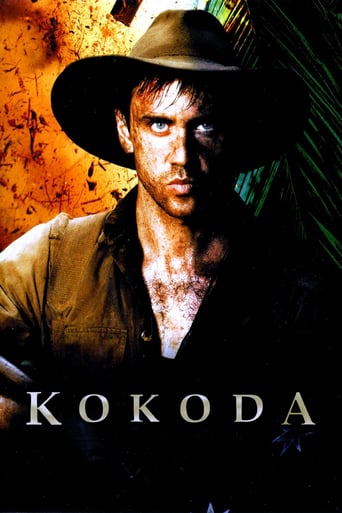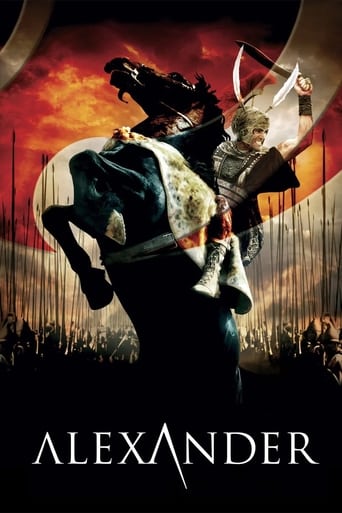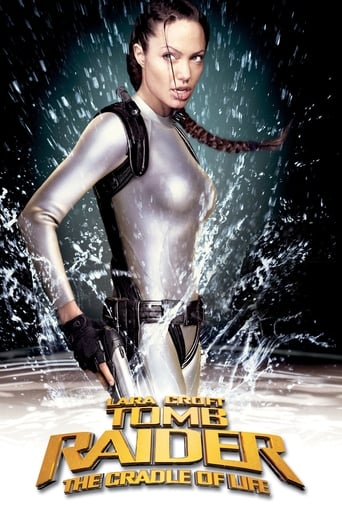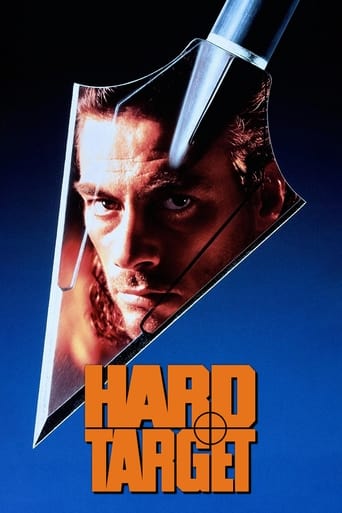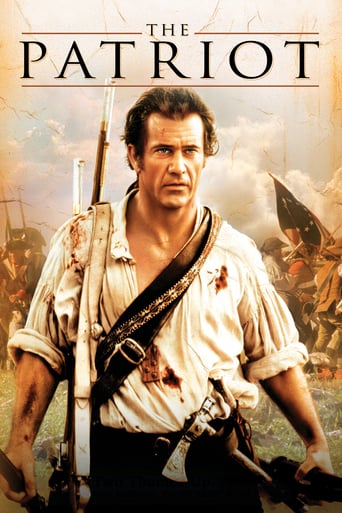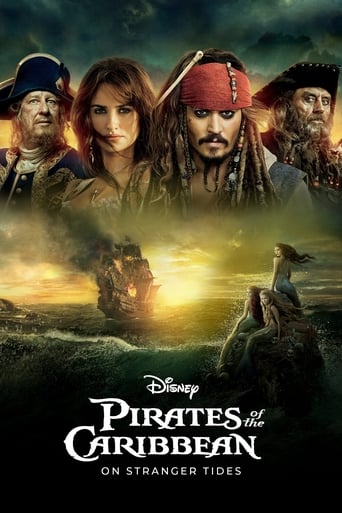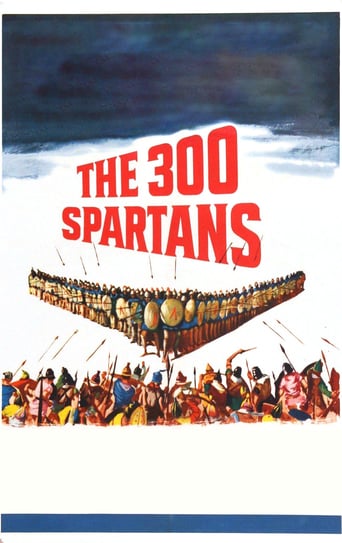
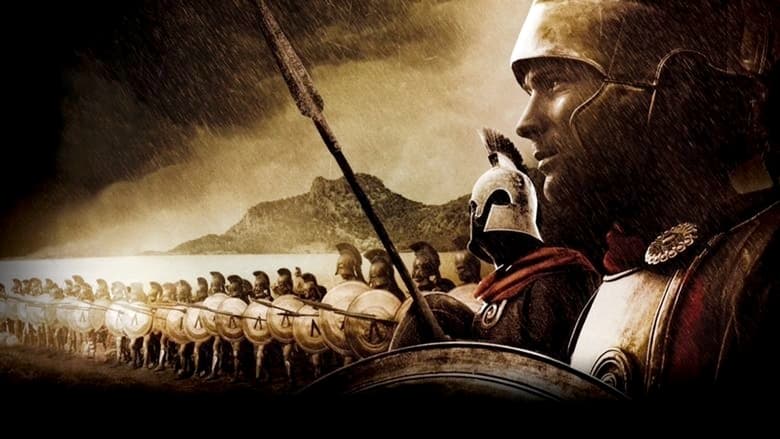
The 300 Spartans (1962)
Essentially true story of how Spartan king Leonidas led an extremely small army of Greek Soldiers (300 of his personal body guards from Sparta) to hold off an invading Persian army now thought to have numbered 250,000.
Watch Trailer
Cast


Similar titles
Reviews
A small army of Greeks spearheaded by 300 Spartans do battle with the whole invading Persian army.When it was released in 1962, critics saw the movie as a commentary on the Cold War, referring to the independent Greek states as "the only stronghold of freedom remaining in the then known world", holding out against the Persian "slave empire". This is interesting, as I absolutely do not see it. What is the parallel? Comic artist Frank Miller saw this movie as a boy and said "it changed the course of my creative life". His graphic novel "300" is about the Battle of Thermopylae, and in 2007, was adapted into a successful film. What I like about this is that it might be assumed that the movie "300" is a remake of this film (albeit a very different one). But, in fact, "300" comes from a graphic novel that was inspired by the original movie... so there's that extra step, giving it a more interesting lineage.
When this ran on television years ago it was quite popular. The film is sort of a continuation of the middle ages films that became a staple of Hollywood in the 1950's and 1960's. Recently some of them are getting remade because of the advances in special effects.This movie in it's time, holds it's own quite nicely. Based upon the true story from history, there is much to recommend this one. In fact the viewer might wish to do a double feature of this movie and then the recent remake 300 and compare the things in common with the differences. The story of 300 Spartans standing up to an entire Persian empire is really quite compelling, in a way more so than the Americans standing up to the entire Mexican Army at the Alamo. It is the same type of story though, hero's enshrined for the ages by doing the impossible and holding back a huge powerful enemy to buy time so they can eventually be defeated.It is interesting the same history being repeated here. This story is a great one of history, and now with modern technology almost certainly an outmoded type of hero worship from the past.
I first saw this movie when aired on TV sometime in the 60s. I thought the battle scenes of ancient warfare were the best I'd ever seen. I knew the story and was impressed by the accuracy. This movie can be used in a history class.It is refreshing to see battle scenes without computer generated soldiers as in so many more recent movies. Other great movies in the genre are John Wayne's "The Alamo" and Christopher Plummer & Rod Steiger's "Waterloo" and Charlton Heston's "El Cid."I will go see "Gates of Fire" if ever released. Hopefully, it will achieve a similar degree of excellence.
It is only a vague memory of seeing this film four decades ago, but it impressed me for several reasons. It is (like ZULU DAWN, but more meaningfully) the story of a military defeat and massacre. It is also one of the handful of American or British films dealing with the history of ancient Greece. And, it is one of the few historical films that got the facts correct.If one thinks about it, Hollywood only produced five other films dealing with ancient Greece between 1950 and 1990. They were "Alexander the Great" (directed by Robert Rossen), and "Jason And The Argonauts" and "Clash Of The Titans", the latter two not about classic Greek history but about the myths of the search for the Golden Fleece and of Medusa and Perseus. The fourth film was "Helen Of Troy" (which starred Cedric Hardwicke, but introduced Brigid Bardot to the U.S.). The fifth film was "The Trojan Woman", a film based on Euripides' tragedy and starring Katherine Hepburn. Italian productions were better, including "Ulysses" with Kirk Douglas and Anthony Quinn, and all those "Hercules" films with Steve Reeves. But the personalities of Golden Age Athens, like Pericles, Socrates, Plato, Alcibiades, never made it onto the big screen."Alexander The Great" was a fairly good film, and recently a new film on the conqueror was made. Also a new film about the Trojan War. Both flopped at the box office. That is why such films rarely are made - the bottom line is will it sell movie tickets (or DVDs). Neither did.So it is a losing battle. But we are losing a great deal of history by ignoring it. So it is rewarding to see a production that dealt with a critical military turning point.In 490 Darius of Persia attempted to conquer the free Greek states, as they were constantly causing trouble in his Greek possessions on the eastern shores of the Black Sea, Asia Minor, and the Eastern Meditteranean. His forces were defeated at the battle of Marathon. Marathon has been immortalized by a summer Olympic race that is named for an event in the battle: how Pheiddipides ran the twenty miles from Athens to Marathon and back without rest to report the victory, and dropped dead a moment after he announced it.Darius died, and his son Xerxes decided to try again. He gathered the largest army in history (reputedly 2 million soldiers) from his empire, and crossed over into Greece, determined to smash Athens. However, this bulky army had to go through narrow mountain passes, and reached Thermopylae. Here a small Spartan army of 300 men, led by King Leonidas, repeatedly held off the attack. Besides showing superior military abilities to the Persian commanders, Leonidas had the added advantage of having a fighting area where the huge Persian forces could not manipulate their troop size in. He could have left several times, after each bloody repulse of Xerxes' men, but he refused because he wanted all of Greece to prepare for this onslaught. He finally told his last messengers to tell the Spartans that his men would never retreat and would die for Greece.In the meantime, Themistocles (the leading political figure in Athens) had been arguing for the need of the sea port to take advantage of it's big calling card - it's huge fleet. Sparta was the great land power, and Athens the naval power. Themistocles started making arrangements for what would be the devastating blow to Xerxes' plans of conquest. Xerxes needed his ships to ferry his huge army back and forth across the Hellespont. Wipe out the Persian ships, and their huge size was not such an advantage anymore.Eventually a traitor gave Xerxes the key to destroying Leonidas and his men - a secret path behind Thermopylae. Surrounded the last chance to retreat was rejected by the King, and the men of Sparta fought until all 300 were killed. But the death toll was like that at the Alamo, as the Spartans just kept killing Persian troops. We don't have the stats available but several thousand troops (mostly impressed slaves, unfortunately) were killed.Xerxes moved onward, approaching Athens. On top of a hill overlooking Salamis Bay, he watched as his huge fleet was faced by a smaller Athenian one. But Themistocles had set up his ships in such a way as to get the larger, more cumbersome Persian ships jamming into each other. The Greeks destroyed most of them, thus making ferrying troops or supplying two million men impossible.Xerxes himself went home - he could not bear to watch what was going to happen. A Spartan led Greek army destroyed his weakened army at the battle of Plataea in 279 B.C.E. Persia never again threatened to grab Greece.The story of the 300 Spartans is now part of western legend - that against all odds, and in the face of death, a small force can make a difference and frequently does. Richard Egan was quite good as Leonidas, and Ralph Richardson did well in a supporting part as Themistocles. David Farrar played the arrogant, but ultimately humiliated Xerxes nicely.A 19th Century Australian poet, Adam Lindsay Gordon, wrote this regarding the sacrifice of Leonidas and his army."We eat and drink or ere we die, (The sunlight flashes on the sea.) Three hundred soldiers feasted high An hour before Thermopylae; Leonidas poured out the wine, And shouted ere he drained the cup, 'Ho! comrades, let us gaily dine -- This night with Pluto we shall sup;' And if they leant upon a reed, And if their reed was slight and slim, There's something good in Spartan creed -- The lights are growing dim." Evren Buyruk,Tx


